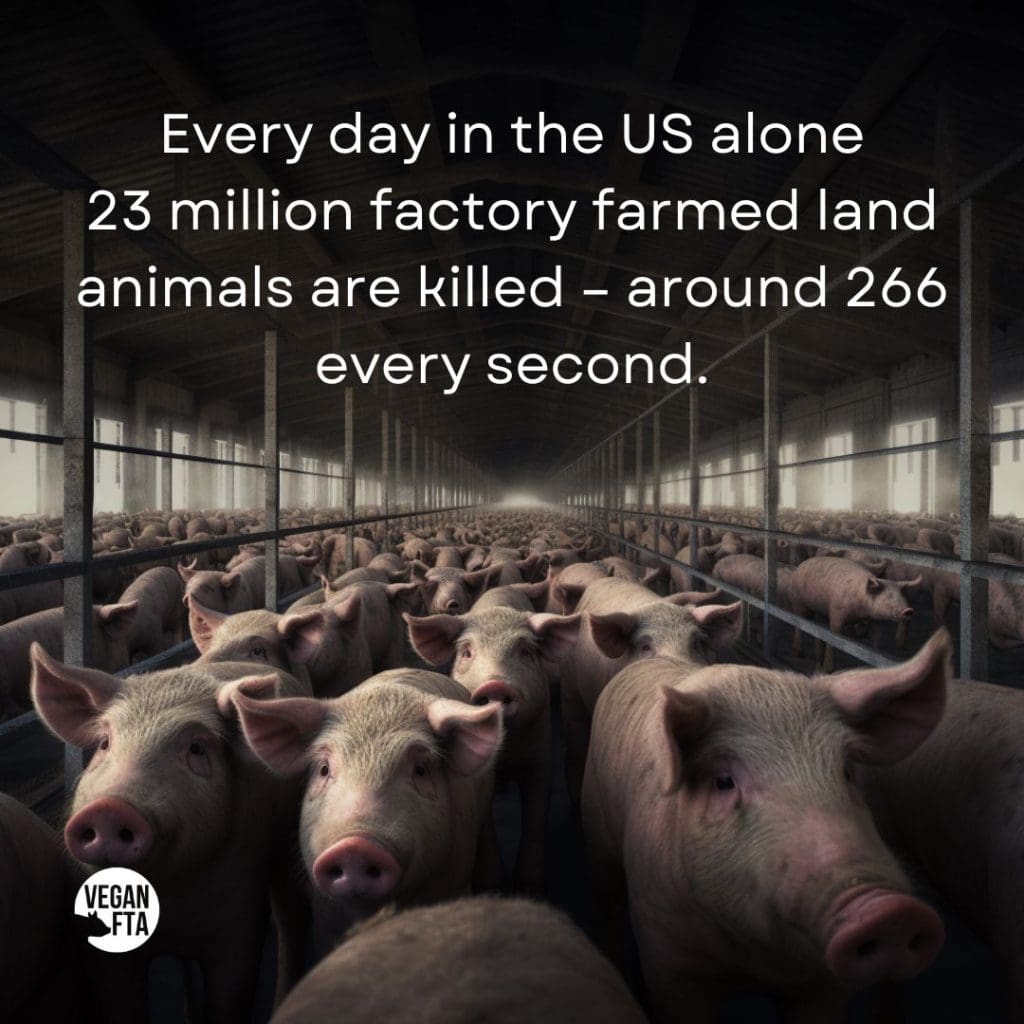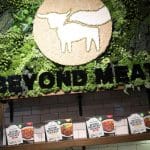Имрӯз, мо ба шиками торикии хоҷагиҳои заводӣ ғарқ шуда, оқибатҳои ахлоқии бераҳмии ҳайвонотро дар ин системаҳои саноатӣ муҳокима мекунем. Вақти он расидааст, ки воқеиятҳои ташвишоварро фош кунем ва мушкилоти маънавиеро, ки аз усулҳои истеҳсоли озуқаи мо ба вуҷуд меоянд, равшан кунем.

Унсурхои асосии хочагии фабрика
Хоҷагиҳои заводӣ, ки инчунин бо номи амалиёти консентратсионии ғизодиҳии ҳайвонот (CAFOs) маъруфанд, иншооти азими кишоварзӣ мебошанд, ки суръати баланди истеҳсолро аз ҳисоби некӯаҳволии ҳайвонот афзалият медиҳанд. Дар ин иншоотҳо, ҳайвонот дар ҷойҳои хурд маҳдуданд, ки ба як қатор мушкилоти ҷисмонӣ ва равонӣ оварда мерасонанд.
Зӯроварии ҳайвонот: ошкор кардани воқеиятҳои ташвишовар
Миқёси бузурги бераҳмии ҳайвонот дар хоҷагиҳои заводӣ боиси рӯҳафтодагӣ аст. Ҳайвонҳо ба азобҳои тасаввурнашаванда, аз зӯроварии ҷисмонӣ то фишори равонӣ тоб меоранд. Дар робита ба зӯроварии ҷисмонӣ, шароити аз ҳад зиёди зиндагӣ, ҳабс ва маҷрӯҳкунӣ васеъ паҳн шудааст.
Зарари психологии ҳайвонот аксар вақт нодида гирифта мешавад. Ин мавҷудоти ҳассос аз сабаби муҳити ғайритабиӣ ва қобилияти зоҳир кардани рафтори табии худ стресс, тарс ва ноумедиро аз сар мегузаронанд.

Дилеммаи ахлоқӣ: Масъулияти мо нисбат ба ҳайвонот
Оқибатҳои ахлоқии хоҷагиҳои заводӣ мушкилоти амиқи маънавиро ба вуҷуд меоранд. Мубоҳисаи байни ҳуқуқи ҳайвонот ва некӯаҳволии ҳайвонот маркази ин баҳс аст. Ҳомиёни ҳуқуқи ҳайвонот баҳс мекунанд, ки ҳайвонҳо ҳуқуқҳои хоси баробар ба одамон доранд, дар ҳоле ки ҷонибдорони ҳифзи ҳайвонот пеш аз ҳама барои беҳтар кардани табобати ҳайвонот дар системаи мавҷуда ҷонибдорӣ мекунанд.
Ҳамчун ҷомеа, мо бояд дар бораи арзишҳои худ андеша кунем ва дар бораи оқибатҳои амалҳои худ андеша кунем. Муносибат ба хайвонот дар фермахои заводхо масъалахои мухимеро ба миён мегузорад, ки ахлоки ба манфиати мо истисмор кардани махлу-лот
Таъсир ба саломатии инсон ва муҳити зист
Кишоварзӣ на танҳо ба ҳайвонот таъсир мерасонад, балки ба саломатии инсон ва муҳити зист таҳдиди ҷиддӣ дорад. Истифодаи бенизомии антибиотикҳо дар кишоварзӣ ба афзоиши мушкилоти муқовимати антибиотикҳо мусоидат мекунад ва самаранокии ин доруҳои наҷотбахшро дар табобати сироятҳо зери хатар мегузорад.
Илова бар ин, хоҷагиҳои заводӣ ба муҳити зист миқдори зиёди ифлоскунандаро партофта, ба ифлосшавии ҳаво ва об оварда мерасонанд. Буридани ҷангалҳо барои ҷойгир кардани ин иншооти азим бӯҳрони ҷаҳонии иқлимро шадидтар мекунад, дар ҳоле ки партовҳои тавлидшуда хатарҳои иловагии экологиро ба вуҷуд меоранд.
Ҷустуҷӯ барои тағирот: Пешбурди алтернативаҳои ахлоқӣ
Хушбахтона, мо метавонем ба сӯи ояндаи дилсӯзтар ва устувор қадамҳо гузорем. Дастгирии деҳқонони маҳаллӣ, ки ба таҷрибаҳои башардӯстона ва аз ҷиҳати экологӣ тоза афзалият медиҳанд, яке аз роҳҳои расонидани таъсири мусбӣ мебошад. Бо интихоби ғизои органикӣ ва аз ҷиҳати ахлоқӣ истеҳсолшуда , мо метавонем ӯҳдадории худро ба некӯаҳволии ҳайвонот ва сайёра нишон диҳем.
Таргибот дар пешбурди дигаргунихо роли халкунанда мебозад. Мо метавонем огоҳиро дар бораи оқибатҳои ахлоқии хоҷагии корхона баланд бардорем ва ислоҳоти қонунгузориро, ки ба беҳбудии ҳайвонот афзалият медиҳанд, тела диҳем. Илова бар ин, истеъмоли бошуурона ва интихоби огоҳона дар бораи маҳсулоте, ки мо харидорӣ мекунем, метавонад талаботи бозорро ба алтернативаҳои ахлоқии бештар барангезад.
Хулоса
Оқибатҳои ахлоқии бераҳмонаи ҳайвонот дар фермаҳои заводҳо раднашавандаанд. Мо бояд ба воқеияти сахти ин системаҳо муқобилат кунем ва дар мавриди интихоби худ ҳамчун шахс ва ҷомеа ба баҳсҳои интиқодӣ машғул шавем.
Бо эътирофи ранҷу азобе, ки мо ба ҳайвонот мерасонем, мо метавонем кӯшиш кунем, ки қарорҳои ахлоқии бештар қабул кунем, таҷрибаҳои башардӯстонаро дастгирӣ кунем ва ба сӯи ояндае кор кунем, ки ҳамдардӣ ва устуворӣ дар системаи истеҳсоли ғизои мо дар мадди аввал қарор доранд.
Ба мо ҳамроҳ шавед, ки бар зидди бераҳмии ҳайвонҳо истодагарӣ кунед ва муносибатҳои мутаносиби байни одамон, ҳайвонот ва муҳити атрофро инкишоф диҳед.
















































